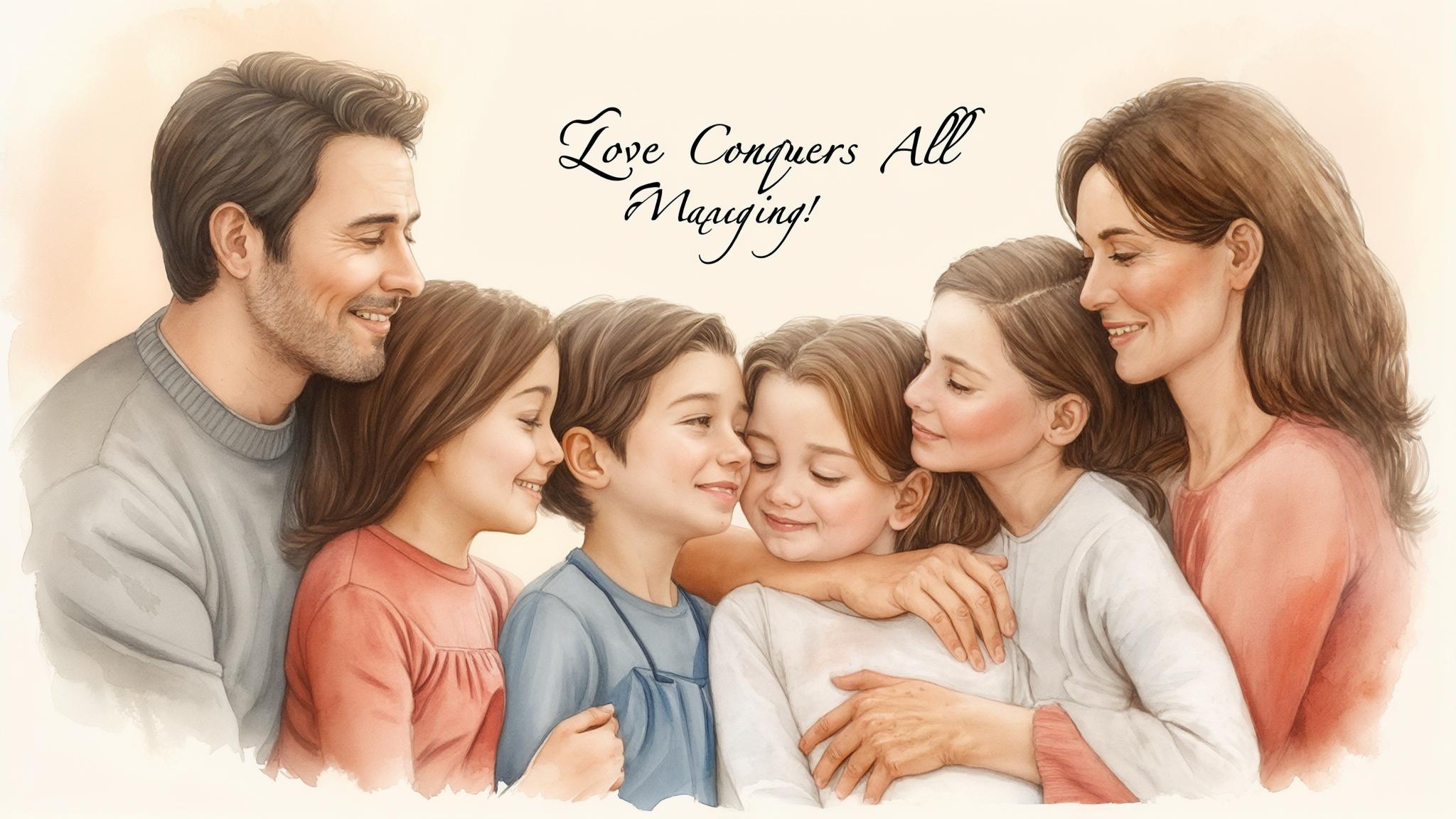Couples Counseling: Navigating Relationship Challenges in Blended Families
I. Introduction
Blended families, often consisting of step-siblings and step-parents, have become a significant part of contemporary society. According to the U.S. Census Bureau, nearly 20% of children live in blended families today, which indicates a changing family structure that comes with its own set of complexities.
A. Definition of Blended Families
A blended family is defined as a family unit that includes one or more children from previous relationships, alongside children born to the new relationship. This family structure presents unique challenges as individuals try to integrate different family dynamics and histories.
B. Importance of Couples Counseling
Couples counseling plays a pivotal role in assisting blended families to navigate their unique challenges. It offers a platform for improving communication and foster understanding among family members. Effective communication and mutual support are vital for managing conflicts and building strong relationships.
II. Understanding the Dynamics of Blended Families
Blended families face various challenges that may exacerbate stress and friction.
A. Common Challenges Faced by Blended Families
1. Role Confusion
Step-parents may struggle to redefine their roles, leading to confusion regarding boundaries and responsibilities within the family. This can lead to tension and misunderstandings among family members.
2. Loyalty Conflicts
Children may often feel torn between their biological parents and their step-parents, creating loyalty conflicts that can be emotionally distressing for all involved.
3. Parenting Styles
Differences in discipline, expectations, and parenting approaches between partners can lead to disagreements and confusion among children. These differences require negotiation and compromise.
B. Emotional Impact on Family Members
The emotional impact on children can include feelings of loss, insecurity, and abandonment, while couples may experience increased stress and frustration as they work through these challenges together.
III. The Role of Couples Counseling
A. What is Couples Counseling?
Couples counseling is a therapeutic approach designed to help partners address issues and improve their relationship. Unlike family therapy, which focuses on the entire family system, couples counseling zeroes in on the couple dynamic.
B. Benefits of Couples Counseling for Blended Families
Couples counseling offers multiple benefits, including:
- Improved Communication: Developing efficient communication strategies.
- Conflict Resolution Skills: Gaining tools for successful conflict resolution.
- Strengthening Partnerships: Reinforcing the couple relationship among blended families.
C. When to Seek Couples Counseling
Signs that a blended family may benefit from counseling include persistent conflicts, compromised communication, and ongoing emotional distress among family members.
IV. Strategies Employed in Couples Counseling for Blended Families
A. Communication Skills Development
Therapists teach effective communication techniques that involve active listening and appropriately expressing feelings.
B. Establishing Family Roles and Boundaries
Counselors guide families in defining their roles and establishing boundaries to foster respect and minimize conflict.
C. Conflict Resolution Techniques
Role-playing scenarios and practical strategies can help families practice and improve their conflict resolution skills.
D. Building Trust and Connection
Activities and exercises designed to cultivate trust and shared experiences among family members can strengthen bonds.
V. Case Studies and Real-Life Examples
A. Success Stories
Many blended families have successfully navigated their challenges with the help of couples counseling. One family, for example, learned to communicate more effectively, allowing each member to feel heard and understood.
B. Lessons Learned
Key takeaways include understanding each person’s perspective, committing to ongoing communication, and recognizing the importance of integrated family time.
VI. Tips for Couples in Blended Families
A. Prioritizing the Couple Relationship
Couples should prioritize their relationship amidst the complexities of parenting, ensuring that they carve out time for each other.
B. Creating a Family Vision
Families are encouraged to establish shared goals and values that foster unity and collective purpose.
C. Regular Check-Ins
Establishing routine communication and relationship check-ins can maintain a healthy dialogue regarding feelings and issues.
D. Seeking Professional Help
Reaching out for counseling is a proactive approach for couples encountering challenges.
VII. Conclusion
A. Recap of Key Points
Blended families face various challenges that require understanding and proactive communication. Couples counseling can offer invaluable support throughout this journey.
B. Encouragement for Readers
Seeking help is not a sign of weakness but rather a proactive step towards enhancing family dynamics and advocating for emotional well-being.
VIII. Resources
A. Recommended Reading
- "Blended Families: A Guide for Parents" by M. H. Merlotti
- "Step-By-Step Guide to Successful Blended Families" by K. R. Matheson
B. Professional Resources
A directory of counseling services specializing in blended families can be found at: TherapyDen.
C. Online Support Groups and Forums
Forums such as Blended Families Facebook Groups provide crucial community support for those navigating similar situations.
IX. Call to Action
We encourage readers to share their experiences or to seek counseling if they are facing challenges within a blended family setting. Remember, help is available, and no one has to navigate these challenges alone.

